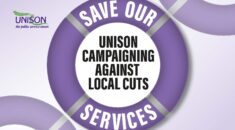A recent BBC One comedy called Tracey Ullman’s Show featured a sketch about librarians on the day their library is closing down. They tap dance because they don’t have to be quiet any more and sing “our arses sacked, no ifs or buts, by a bunch of Tory cuts.”
It’s worth a watch for the comedy, but there is also a dark truth underlying their jokes. Our libraries are shutting down at an alarming rate and library staff are losing their jobs.
In Derby, the council’s plan to close the central library and hand over eleven others to be run by volunteers has been met with anger. In Sheffield, campaigners are urging the council to reject a deal with a Chinese company that would lead to the city’s central library building being turned into a five-star hotel. And in Swindon, two thirds of libraries are to close by the end of August 2017.
Data released last December by The Chartered Institute of Public Finance and Accountancy (CIPFA) shows that spending on local libraries has fallen by £25 million and 478 libraries have closed across England, Scotland and Wales since 2010.
Last March, the BBC published research based on Freedom of Information requests that showed that almost 8,000 library staff have lost their jobs.
The thing is, libraries are legally protected. Since 1964 maintaining libraries has been a statutory duty for local authorities under the Public Libraries & Museums Act; so why are we losing our libraries?
The problem is funding for local government is being decimated and as a result many councils are choosing to axe libraries to save cash.
While some local councils are shutting libraries down, others are relying on more and more provision from volunteers, and others are handing over services to ‘communities’ to run or even outsourcing them to private providers.
Private providers
Handing over libraries to be run by private providers runs even greater risks.
Private providers run public services for the purpose of making a profit, rather than to provide a service to all with equality of access. When profits are taken out of public services, they get worse, and this will happen to libraries. It also puts libraries at risk because the company could decide they don’t want to provide the service anymore.
Unfortunately the government is not working with unions and unions have no representation on the libraries task force, the group leading these changes to libraries.
Mutuals
The most recent government plan also talks about libraries turning into ‘mutuals’.
While small community groups like co-operatives have long played a role in complementing public services, this has predominantly been in niche areas through grant funding and many have struggled to survive long-term once financial and technical support has been withdrawn.
UNISON is very concerned about the push towards mutuals because it stems from an agenda to outsource mainstream public services rather than a genuine desire to maintain strong public services, empower workers and improve service quality.
Where mutuals are given library services to run, after three years the contract will have to go out to tender again, and at that point private providers could take the library over.
When UNISON members were asked, 68% disagreed or strongly disagreed with the statement that the public library service is best as a service provided by a charitable trust or mutual. Just 3% agreed or strongly agreed and 16% were undecided.
Library staff are losing out
As well as communities suffering because their libraries are closing, library staff have been taking home less pay.
What’s happening in your area?
Find your area on the map below to see how many libraries have closed in your area (data from the BBC in March 2016).
What is your experience?
Your local library
What is going on with your local library? Has it closed down? Are people campaigning to save it? Or is it going strong?







